Taking in a rescue Chihuahua is a total game-changer. It’s not always easy, but boy, it’s rewarding! If you’re thinking about adopting, it’s super important to know what you are dealing with these little guys – like their habits, their health, and all that. Once you’re clued up, you’ll be all set to make your new fluffy buddy feel right at home!
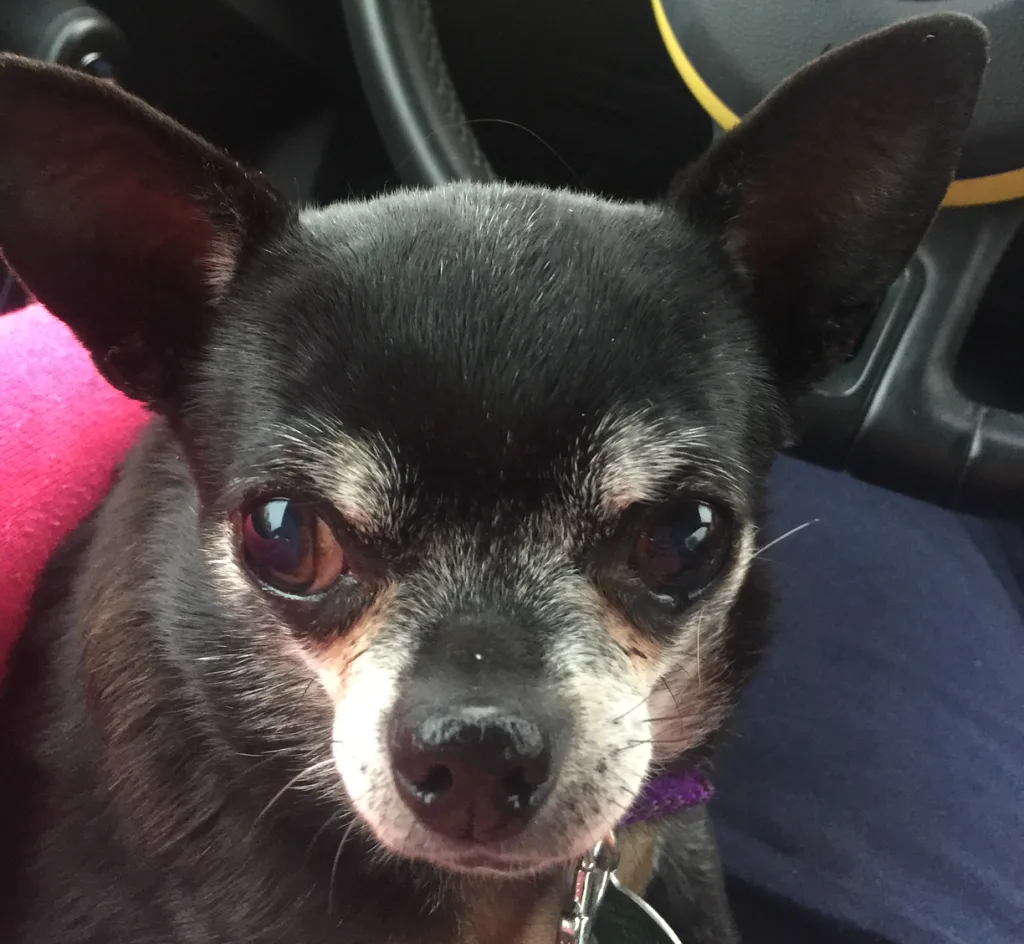
Rescue Chihuahuas usually have somewhat of a tough past, so they might be a bit scared or nervous at first. But hey, with a little patience, lots of love, and understanding, they can totally get used to their new environment and really flourish in a loving home.
Just be ready for those first few days of settling in – it’s like setting the scene for a happy, lifelong friendship with your tiny rescue buddy.
Key Takeaways
- Understanding rescue Chihuahuas’ backgrounds and needs helps develop a positive relationship.
- Preparing ourselves for the first days of adjustment is essential in creating a comfortable environment.
- Adopting a rescue Chihuahua involves being attentive to their health, grooming, and training needs.
Understanding Rescue Chihuahuas
History and Origin
As someone who has looked into the history of Chihuahuas, I can say their origin story dates back to ancient Mexico. Chihuahuas are believed to be descendants of the Techichi dog, a small companion dog that was loved by the Toltec civilization.
These dogs have been around for centuries, and their popularity continues to this day, especially among rescue organizations and pet lovers like me.
Rescue Chihuahuas, just like any other rescue dogs, often come from various backgrounds. Some can be found in shelters or as strays, and others might have been surrendered by previous owners.
As a dog lover, what amazes me is that regardless of their history, these little dogs have so much love to offer once they find their forever homes.
Common Behavior Traits
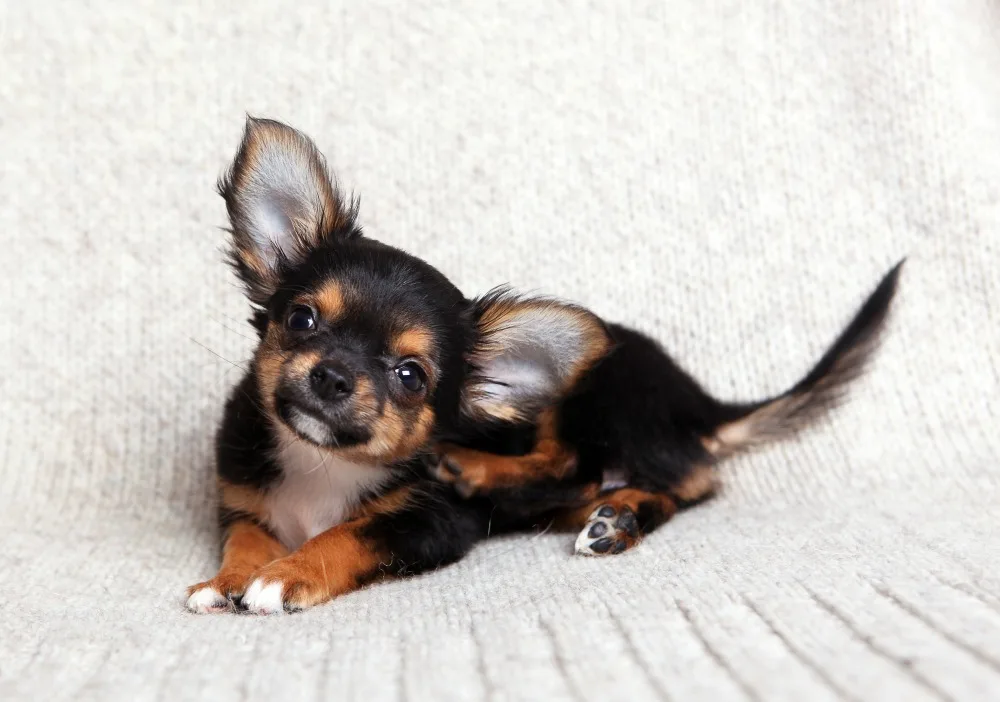
From what I’ve seen, rescue Chihuahuas tend to have a few quirks you might want to know about before bringing one home. It could just be typical Chihuahua stuff, or it might be due to their past experiences before getting rescued.
First off, Chihuahuas can be pretty possessive, especially about their humans. They really latch onto their new owners and can get a bit skittish around strangers or other pets, big dogs in particular. So, it’s super important to help them make friends by introducing them to other people and pets in a chill, positive way.
Also, Chihuahuas can be pretty chatty. They’re often barkier than other dog breeds, which I personally find kinda cute, but it can get on your nerves after a while. To handle this, it’s key to teach them when it’s okay to bark, like if someone’s at the door or if there’s a stranger lurking around.
Another thing to keep in mind is potty training. Chihuahuas can be a bit stubborn at times, making the whole housebreaking thing trickier than with other dogs. But hey, with a steady routine, some patience, and a lot of “good dog!” moments, usually you can manage to get your Chihuahua trained.
And finally, even though Chihuahuas are little guys, they still need a good workout. Regular walks and playtime are a must to keep them fit and happy.
So, to wrap it all up, it’s super important to understand rescue Chihuahuas, their past, and their typical behaviors if you want to give one of these awesome little dogs a good home. Take a moment to learn about their needs, and put in the work to build a strong bond. Trust me, it’ll lead to a really sweet and rewarding friendship.
Preparing for Your Rescue Chihuahua
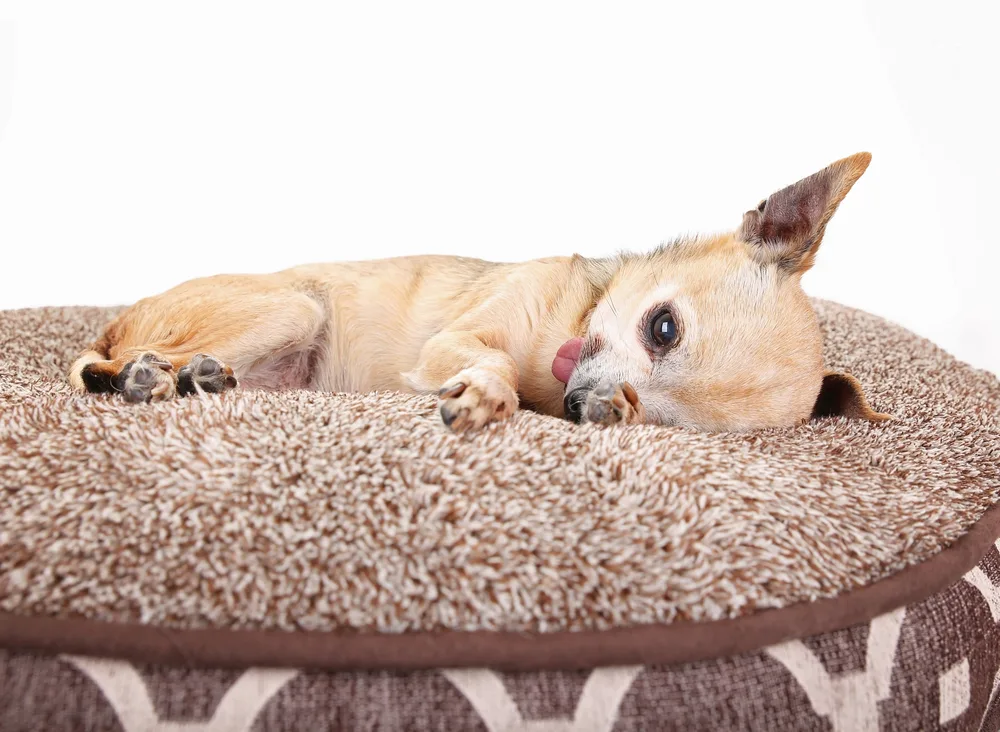
Necessary Supplies
When I adopted my rescue Chihuahua, one of the first steps I took was to gather the necessary supplies. I made sure to have a leash and harness, food and water bowls, a cozy dog bed, toys, treats, and a veterinary-approved diet. Having all these essentials on hand helped my Chihuahua feel comfortable and secure in her new home.
Setting Up a Safe Home Environment
For me, it was super important to make my rescue Chihuahua feel safe and comfy. I set up a specific hangout spot in my house for her to chill when I wasn’t around. This spot had all the goods: her bed, toys, and food bowls to help her get used to the place and feel relaxed.
Remember, Chihuahuas are little and delicate, so I had to make sure my place was danger-free. Here’s what I did:
- I popped up baby gates to block any risky spots.
- I tucked away all the loose wires and cords so no mishaps could happen.
- I cleared out any sharp stuff or anything that could break from my Chihuahua’s hangout area.
Also, I made sure my other pets got to know the new kid on the block slowly, so they could all get along just fine.
In the end, by getting all the stuff she needed and making my place safe, I managed to create a cozy spot for my rescue Chihuahua to settle into and call home sweet home.
First Days with Your Adopted Chihuahua
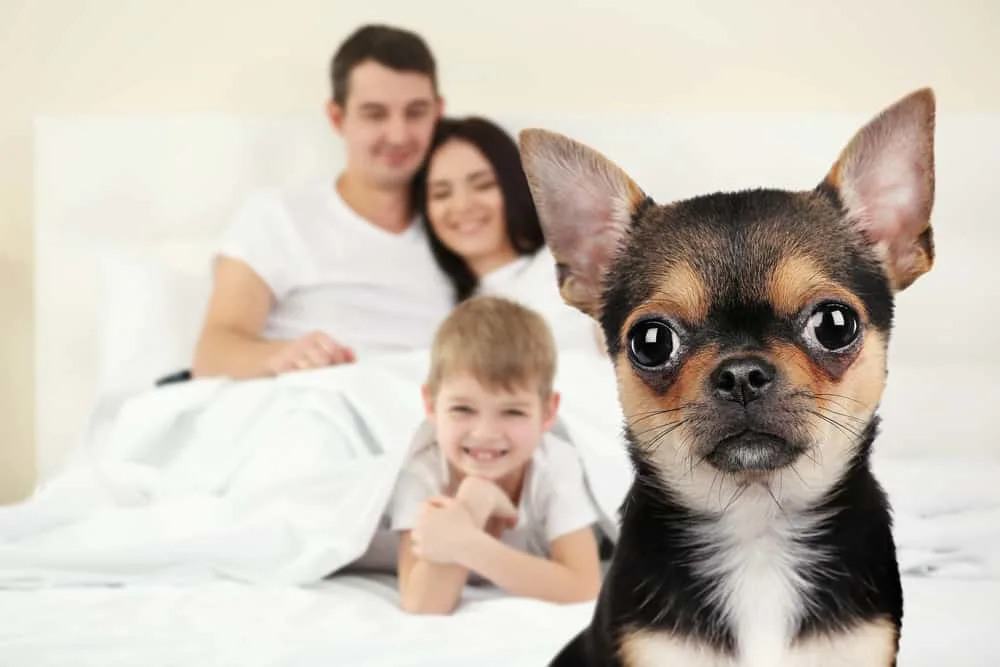
Building Trust
When I first brought my adopted Chihuahua home, I knew I had to give her some breathing room to settle into her new home. The first few days can be a bit much for them, so it’s super important to give them a safe spot, like a comfy bed or crate.
I was always super gentle when I approached her, kept my voice low and soothing, and let her come to me when she was ready. I discovered that handing out treats and toys was a pretty good way to build trust and make her feel good about me.
Proper Introductions with Other Pets
Getting my Chihuahua to meet my other pets was a super important part of making sure everyone could get along under one roof.
I kicked things off with some controlled intros where everyone was on a leash, in a place that didn’t belong to anyone, like a fenced yard or a park, just so no one got all territorial. I let the pets sniff each other out and say their hellos, all the while giving them props and treats for playing nice.
Then, bit by bit, I upped the time and number of these meet-ups, always keeping an eye on their behavior and vibes to make sure no one was stressed out or looking for a fight.
Establishing a Routine
Like pretty much all dogs, my Chihuahuas like having a routine. Sticking to a daily schedule for food, walks, play, and snooze time really helped them feel settled and secure in their new home. I tried to balance things like walks on the leash and fun games with brain games, like treat puzzles or a little bit of “sit” and “stay” training.
Giving them a “good dog!” and a treat for being well-behaved was key, as well as laying down the law about what’s okay and not okay at home. Starting this routine early helped my Chihuahua get the structure she needed to feel comfortable, and it really helped us bond.
With some patience, a whole lot of understanding, and sticking to the plan, I saw that my adopted Chihuahua started to trust me and feel at home. Taking these first steps is super important if you’re looking to build a really awesome bond with your new best friend.
Health and Grooming

Health Concerns to Watch for
When I adopted my rescue Chihuahua, I knew that I should keep an eye on certain health issues that can be common in the breed. Some of these included:
- Patellar Luxation: This is a condition where the kneecap can easily slip out of place, causing limping or difficulty walking.
- Heart Conditions: Chihuahuas are prone to several heart issues such as heart murmurs and congestive heart failure, so it’s important to get regular vet checkups.
- Dental Issues: Chihuahuas often have dental problems because of their small mouths. To prevent issues, I brush my dog’s teeth regularly and provide dental chews.
- Obesity: It’s important to give Chihuahuas a balanced diet and appropriate exercise to prevent obesity-related issues.
Basic Grooming Requirements
When it comes to grooming my rescue Chihuahua, there are a few key tasks I make sure to include in our routine:
- Brushing: I brush my Chihuahua regularly to remove loose hairs and prevent matting. This helps keep their coat looking healthy and reduces the amount of hair around the house.
- Bath Time: While Chihuahuas don’t need frequent baths, I make sure to bathe mine once a month or as needed. It’s important to use gentle dog shampoo to avoid drying out their sensitive skin.
- Nail Trimming: I trim my Chihuahua’s nails regularly to prevent overgrowth and keep their paws comfortable.
- Ear Cleaning: Chihuahuas can be prone to ear infections, so I clean my dog’s ears routinely with a gentle ear-cleaning solution to prevent issues.
So, to wrap it up, making sure to get regular health check-ups and sticking to the basic grooming stuff has really helped me keep my rescue Chihuahua feeling good and looking sharp!
Training Your Rescue Chihuahua
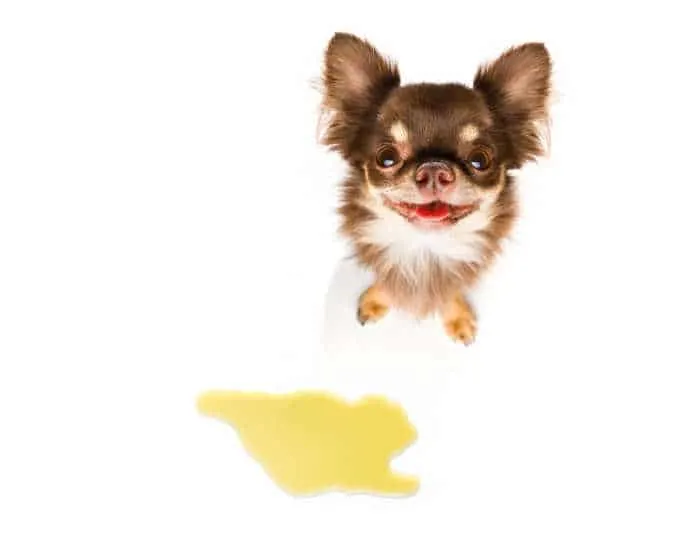
House Training
When I first got my rescue Chihuahua, one of the big things on my to-do list was house training. I found out pretty quickly that you got to have a whole lot of patience and be super consistent with it.
At first, I’d take my Chihuahua outside a lot to set up a routine, giving her lots of “good dog!”s and treats when she did her business outside. If she had an oopsie inside, I’d just clean it up and move on, making sure not to scold or punish her because that could make her all anxious.
Watching my dog’s body language and keeping her meals regular really helped with the house training too. After a while, she started to get the hang of the routine, and life got a whole lot easier for both of us.
Socialization
Getting my rescue Chihuahua to be more social was another big part of the training. I found that letting her meet new people, animals, and places bit by bit really helped her feel more confident.
Chihuahuas can be a little shy and protective, so making sure she felt safe while she got used to different situations was really important to me.
I’d start with short walks, letting my dog meet new people while they were on a leash. I’d also take her along to pet-friendly stores and parks. And signing up for dog training classes or hanging out with other dog owners was another awesome way to get her more used to socializing.
Behavior Modification
Last but not least, sorting out any behavior issues with my rescue Chihuahua was really key to building a strong, trusting relationship.
It’s important to remember that my Chihuahua might have some past stuff that’s affecting how they act now. Using positive reinforcement, like treats, compliments, and toys, really helped me teach her new stuff and curb any behaviors we didn’t want.
For any really tough behavior issues, I found it super helpful to get advice from a pro dog trainer. With a little time, lots of patience, and sticking to the plan, my rescue Chihuahua started to get better and better, and we really bonded as we learned and grew together.
Final Thoughts
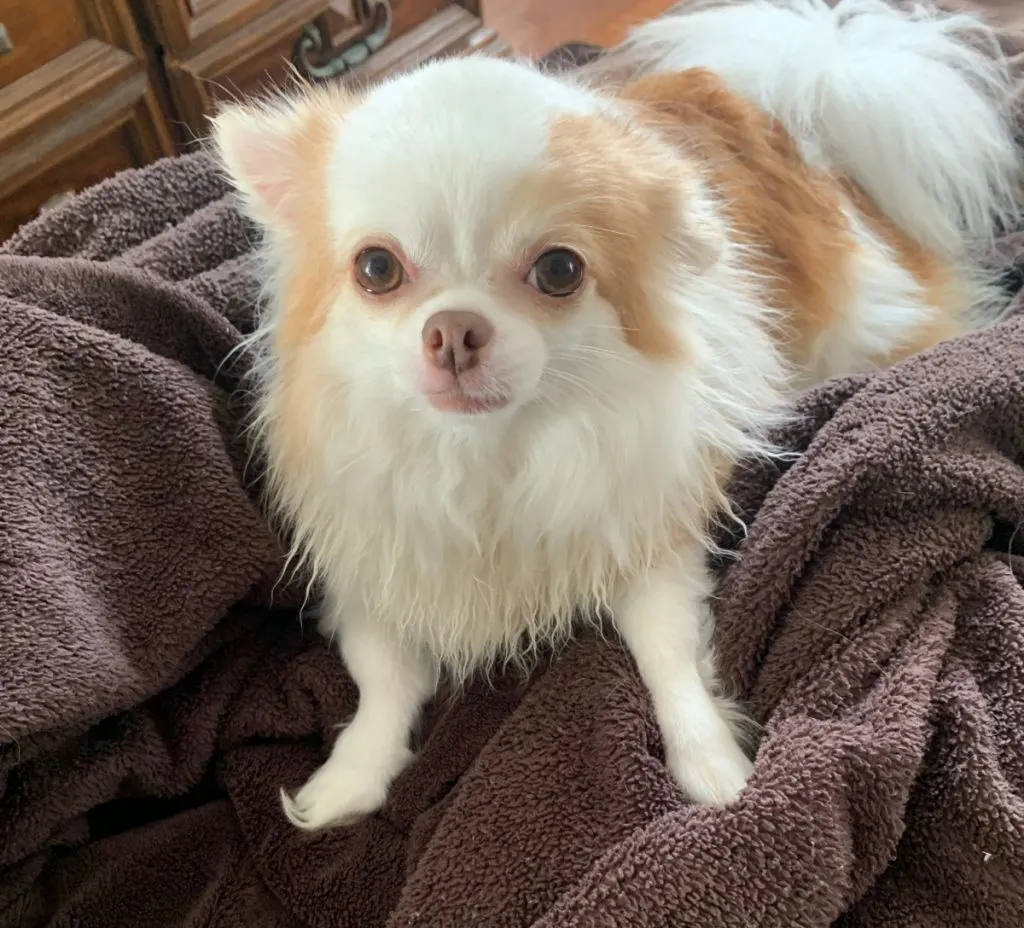
Adopting a rescue Chihuahua was a super touching and rewarding experience for me. The journey kicked off with realizing that I needed to be patient and give her time to chill in her new home. I learned that Chihuahuas need a good chunk of time to get used to their new home and feel secure.
In my experience, I found it was super important to do my homework on any health problems and behavior quirks that Chihuahuas might have. This let me deal with any issues right away and know what to keep an eye out for.
I can tell you their behavior does change as time goes on. They might be a bit scared at first because of their past, but with a whole lot of love and care, they start to feel more at home and trust you more.
I learned to take it easy during the housebreaking stage – Chihuahuas might need a bit longer to get fully house-trained.
One thing I didn’t expect was that Chihuahuas really like warm weather, which ended up affecting how I planned our outdoor time and set up her living space. Being aware of potential health issues like joint problems, bone issues, and seizures also helped me make sure I could give my new furry baby the right care and attention.
To wrap it all up, adopting a rescue Chihuahua is an amazing experience. With a bit of patience, a whole lot of love, and understanding, they become a super important part of our lives, making our days brighter and happier.
I’d love to hear about your experience rescuing a chihuahua and any tips you’d like to share.

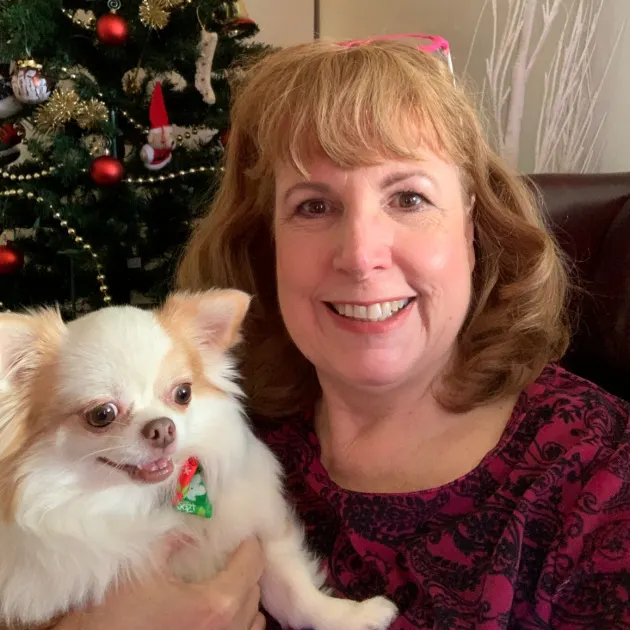
Cathy Bendzunas
Pet Blogger
Frequently Asked Questions
Chihuahuas can have some unique behavior quirks due to their small size and temperament. They might be more prone to anxiety or fear in new situations, so it’s important to give them time and patience. When I first adopted my rescue Chihuahua, I made sure to help them relax and settle into their new environment.
Chihuahuas may experience health issues such as joint and bone issues, seizures, and dental problems. It’s important for me to be aware of these potential health concerns and get regular checkups for my Chihuahua at the vet. To better understand and track their health history, I asked questions about their past health when I adopted them.
Training a rescue Chihuahua might require some extra patience, as they may be more fearful or stubborn due to past experiences. When I train my Chihuahua, I use positive reinforcement and gentle training methods. Keeping the sessions short, frequent, and fun works best for us.
Socializing a rescue Chihuahua can be challenging, as they may have had limited positive experiences with other dogs and humans before. When I started socializing my rescue Chihuahua, I did it gradually, exposing them to new experiences in a controlled environment. It was important for me to monitor their stress levels and ensure they felt comfortable and safe throughout the process.
While Chihuahuas don’t require as much exercise as larger dogs, they still need daily walks and playtime to stay healthy and happy. I usually take my Chihuahua on a couple of short walks each day, and we have indoor play sessions to help keep them both mentally and physically stimulated.
When I first adopted my rescue Chihuahua, I made sure to have the necessary supplies to help them feel comfortable and secure. These included a crate or bed, food and water dishes, a leash and harness, toys, and grooming supplies.

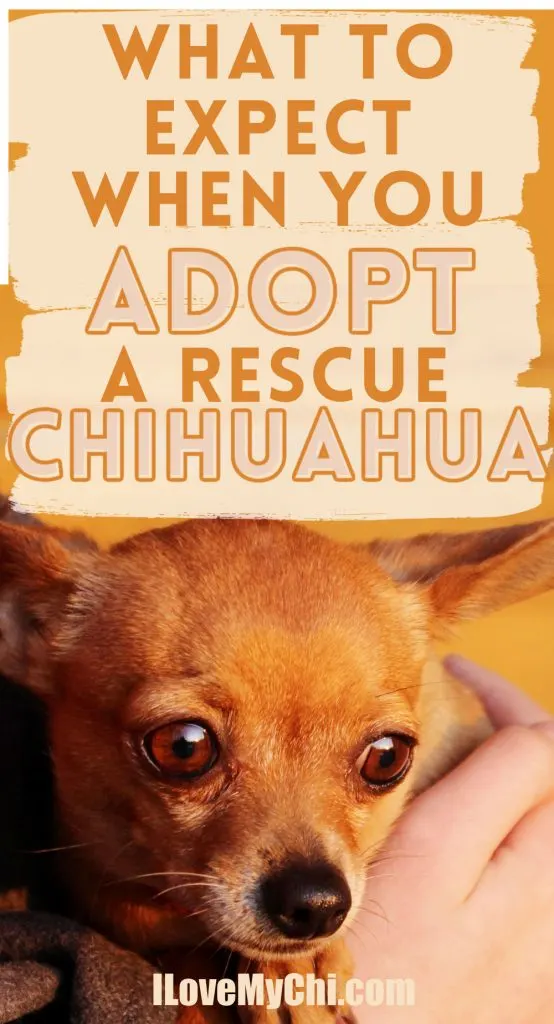
sheila
Tuesday 8th of April 2025
I adopted a ten year old chahuahua female from a rescue service. They told me her name but she will not answer to the name she gave me. Any sigestions have a list and call net different names but no answer
Cathy Bendzunas
Tuesday 8th of April 2025
Is her hearing okay? If it is, you can decide what you want her name to be and teach it to her since she's not responnding to her current name. The way to do it is to say her a name and give her a small treat. Do this several times throughout the day. Progress to standing about 5 feet away from her, say her name and show her the treat. If she responds in any way give her the treat. I deally you want her to come to you but even if she just looks over at her, give her the treat. Always praise her if she does come to you. Eventually when she's responding to her name, you can cut way back on the treats and then stop them altogether once you are sure that she does know her name.
Karen
Saturday 17th of June 2023
I, too, got a rescue chihuahua and now (2 yrs later) she is almost perfect. The biggest issue is food, she only likes Chicken, nothing else. I worry about health. I have tried commercial foods (nomnom) (spot & tango) plus all store bought good foods, she will eat none of them. I am at my wits end. I know she needs vitamins/minerals, have bought well&good vitamin gel, I don’t know what to do? Any suggestions from you and other chi owners. Karen
Cathy Bendzunas
Saturday 17th of June 2023
Well to make you feel a little better, my mom fed her Lhaso-apso nothing but chicken all her life and she lived to be 14 with very few health problems until the last few months of her life. Try mixing in a little chicken or beef bone broth to her food and see if she will drink that. That will add some minerals to her diet. If that works, you can try sneaking in some vitamins to the broth.
Debbie
Friday 16th of June 2023
I have rescued many chis in the past. More recently I adopted 2 more in the past 9 months. Both were picked up wandering the streets. Patience is the key, watch them to learn their unique behaviors. And routine, as you said, is an absolute must! I’ve also found that having other chis in the home helps new fur babies to adapt, at least once they learn that mama has to be shared 😃. While all mine are house trained, I do keep puppy pads down, and I’m ok with that. If you don’t mind them on the furniture, steps are a must. We currently have 5 chis, 4 rescues and 1 we raised from a pup. When she was about 6 months old, she was diagnosed with meningitis. I swear this was from the vaccines although we will never know for sure. I affectionately refer them to lays potato chips; you can’t have just one. Lol. I always look forward to and enjoy your posts. Thank you so much for all you do. And I pray to God he will keep you healthy. Sincerely, Debbie
Cathy Bendzunas
Friday 16th of June 2023
Great advice Debbie! Thanks!